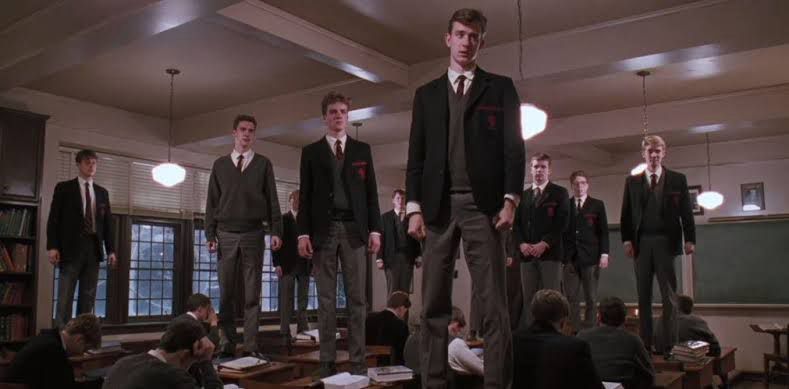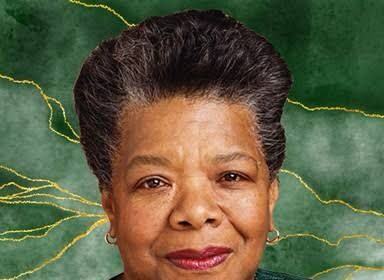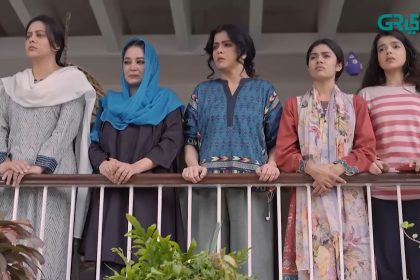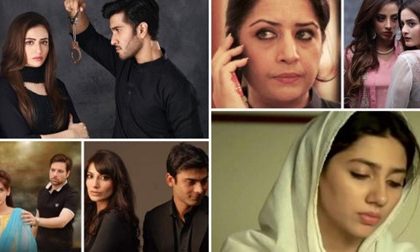“We don’t read and write poetry because it’s cute. We read and write poetry because we are members of the human race…”
— John Keating, played by Robin Williams in Dead Poets Society (1989), directed by Peter Weir and written by Tom Schulman)
Our society burns away the soft children like sandpaper on a matchstick, what’s left behind is the essence of what could’ve been.
In Dead Poets Society, we are introduced to one of the film’s many protagonists—Neil Perry—the epitome of a perfect student, a perfect son. Perfection, however, never truly makes a man whole. The hollow in his chest, that ache for something more, is what led to a drift between him and the expectations his parents upheld. Neil Perry was someone we had all hoped to be.
When Keating’s voice rang out, each syllable was laced with a quiet warning we misunderstood—society nurturing individuals to lose their personal attributes, replacing them with something better; something that strips off the creative badge, stamping it with the monotonous, robotic cycle.
In other words, we don’t grow up—we are simply processed. And that is considered success.
Art Is Dangerous—And That’s Why They Fear It
Perhaps the biggest resemblance between today’s world and the fictional world of Dead Poets is that society fears artists—because art can never be controlled. It is a flow of rhythmic energy, bouncing off the shackles that trap people in this labouring life.
The film wasn’t just fiction—it was prophecy. Though the action began with Neil, the effect plundered the whole world. Noble pursuits turned out to be no more than noble punishments. We’ve seen boys forced into these ‘pursuits’, like engineering or medicine. We’ve seen girls taught that silence equals obedience. The chamber of creativity has long been chained—its echoes reverberate off tuition centre walls and living room ceilings.
South Asia’s Own Welton Academy
The film features Welton Academy, which stands on four fundamental pillars:
Tradition, Honour, Discipline, Excellence.
While in our South Asian households, we are left victims to a paradox. Our morals stand on the principles of respect, reputation, compliance—and worst of all, perfection.
Different words, yet the same cages.
We are given a false narrative to fall victim to—the illusion that art can never be more than a measly hobby. Art is a form of self-expression considered laughable by our fathers and their forefathers.
Success is linked to the birth of noble careers from noble subjects. What our elders fail to recognise is that societal norms have created barriers so thick, they make us question our worth: whether we are masculine or feminine enough.
Whether the roti’s rounded perfection defines the perfect daughter—or does the breadwinning son who has left behind his vulnerability, and now dons a mask of stoicism, define masculinity.
The Children We Silenced
Neil Perry wasn’t just fiction—I’ve seen versions of him. Met him. Talked to him in Karachi, Lahore, and even in my own school.
The way Neil played Puck in secret? I’ve seen the boy who hides his guitar under the bed when his father’s footsteps grow louder. The girl who folds her dreams of becoming a poet under freshly washed laundry.
The Boys We Know
Maybe Neil wasn’t the only mirror.
The film introduces several other important protagonists—including Todd Anderson, the boy who observed. He opted for silence, not because he had nothing to say, but because no one would listen. Having to fill his big brother’s shoes, Todd shrank under the pressure of living up to a standard that was never his.
The immoral practice of comparing one’s child to another is often disguised as motivation—but does more collateral damage than anything else.
Children are compared like report cards hung on our fridges: neat, proud, and cold.
Somewhere between silence and surrender was Charlie Dalton—who believed life was not something to take seriously.
I’ve seen him in literature classrooms—speaking his mind when someone crossed a line, only to be debauched with labels like dramatic or overconfident when what he showed was courage.
Then there was Knox Overstreet—the hopeless romantic. The one who believed in love enough to write sonnets for the girl he liked.
In today’s world, that boy would be told to “man up”. He would be conditioned into believing that writing poems for affection is unmanly, that softness is something to outgrow.
The Teacher They Tried to Erase
But underneath it all stood the pioneer: Mr. Keating—the teacher who dared to tell them they were so much more than their chosen paths.
He made them realise that the chamber of creation locked inside their chests was waiting to break free. Their art, once reawakened, could never be taken. It was too deeply engraved in their souls to ever be stripped away.
Before It’s Too Late
When beauty, romance, and love—the very things we stay alive for—are yanked from us, just as they were taken from Neil, we do what he did.
We lose our reason to live—and with it, we lose ourselves.
The chamber of art locked in our chests? It explodes.
Just like the bullet reached Neil’s heart before his father understood the weight of what he’d destroyed.
The apple doesn’t fall far from the tree—only this time, the son took away the thing the father loved most.
Neil’s father took away his art.
Neil took away his presence.
Perhaps it’s not too late.
We still have time to listen. To unlearn. To ask, “What do you love?”
Because Dead Poets Society was never just a film.
It was a warning.
And this time, maybe we’ll stand on our desks before someone has to die to be heard.












